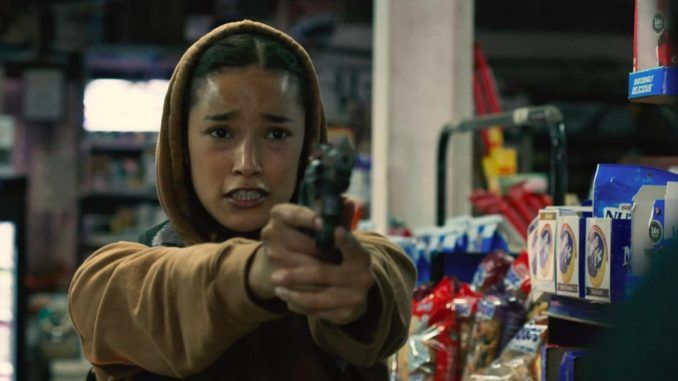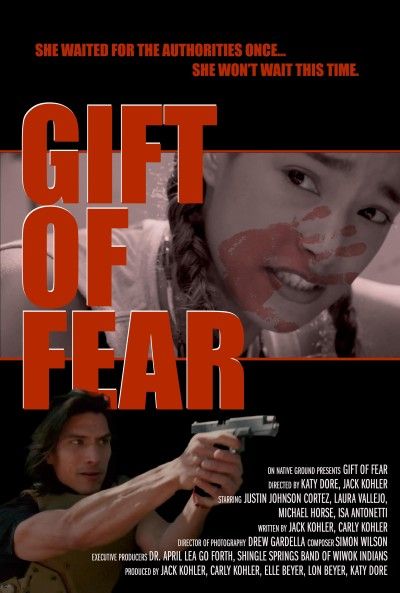
Rating: C-
Dir: Katy Dore, Jack Kohler
Star: Isa Antonetti, Laura Vallejo, Justin Johnson Cortez, Nora Zade
There’s no doubt the makers of this genuinely care very deeply about their topic: specifically, the problems facing native American women, and the high number of disappearances among that group. However, the earnestness on view can only go so far. “We really made the movie for non-Natives,” said Kohler. Which would be me. A pro-tip, however: I recommend not shitting on your intended audience. Because the clearest lesson I took away from this, was that men are generally bad, and white people are typically terrible. White men? They’re the worst. It doesn’t help when your heroine feels less like a real person than a checklist of diversity boxes. Female? Check. Indigenous? Check. Lesbian? Check. I was, however, disappointed by the lack of disabled representation. /s
It’s the story of Mili (Antonetti), a teenage native American girl whose mother vanished under highly suspicious circumstances on a hunting trip with her father. She’s been punted around the foster care system over the decade since, and just moved to a new situation in the hope of getting her away from the gang with which she was involved. She’s enrolled in the Dragon Fox dojo under Koko (Vallejo), to give her aggression an outlet, and teach her discipline. Naturally (and this is me rolling my eyes), she doesn’t take kindly to this at first, but is attracted to classmate Ten (Zade). However, her old gang won’t let her leave so easily, and there’s also a spate of young women vanishing in the area, chalked up by the authorities as “runaways”.
 The last thread is easily the most interesting and relevant, with federal investigator Manny Donovan (Cortez) showing up to investigate, and not finding a cooperative population, burned by previous government uselessness. This is fairly well-handled and interesting stuff, in part because it has some nuance, an aspect too often missing elsewhere [Though the off-res cops are useless to an unintentionally almost comic level]. Focusing on this, and removing – or, at least, severely trimming – Mili’s soap-opera bullshit and martial-arts clichés, feels like it would have been a much better way to show the situation to us “non-Natives.” For those of us who are no longer teenagers, anyway, since Mili seems just as whiny and entitled as any teen.
The last thread is easily the most interesting and relevant, with federal investigator Manny Donovan (Cortez) showing up to investigate, and not finding a cooperative population, burned by previous government uselessness. This is fairly well-handled and interesting stuff, in part because it has some nuance, an aspect too often missing elsewhere [Though the off-res cops are useless to an unintentionally almost comic level]. Focusing on this, and removing – or, at least, severely trimming – Mili’s soap-opera bullshit and martial-arts clichés, feels like it would have been a much better way to show the situation to us “non-Natives.” For those of us who are no longer teenagers, anyway, since Mili seems just as whiny and entitled as any teen.
Maybe that’s the moral here, because the film is at its most i.e. somewhat effective when it isn’t pushing a narrative of differences. Having a child go missing is traumatic for any parent, regardless of race, colour or creed. Tapping into that common anxiety is probably going to do more to get me onside than a po-faced recitation of statistics like, “Currently, there are over 9,000 missing Native American woman in the US & Canada.” Is that a lot? Seems a lot. Though less so when you learn twenty-three hundred people go missing every day. It’s another misstep for a film where I can respect the intent, yet simultaneously find a significant number of flaws in the execution.
